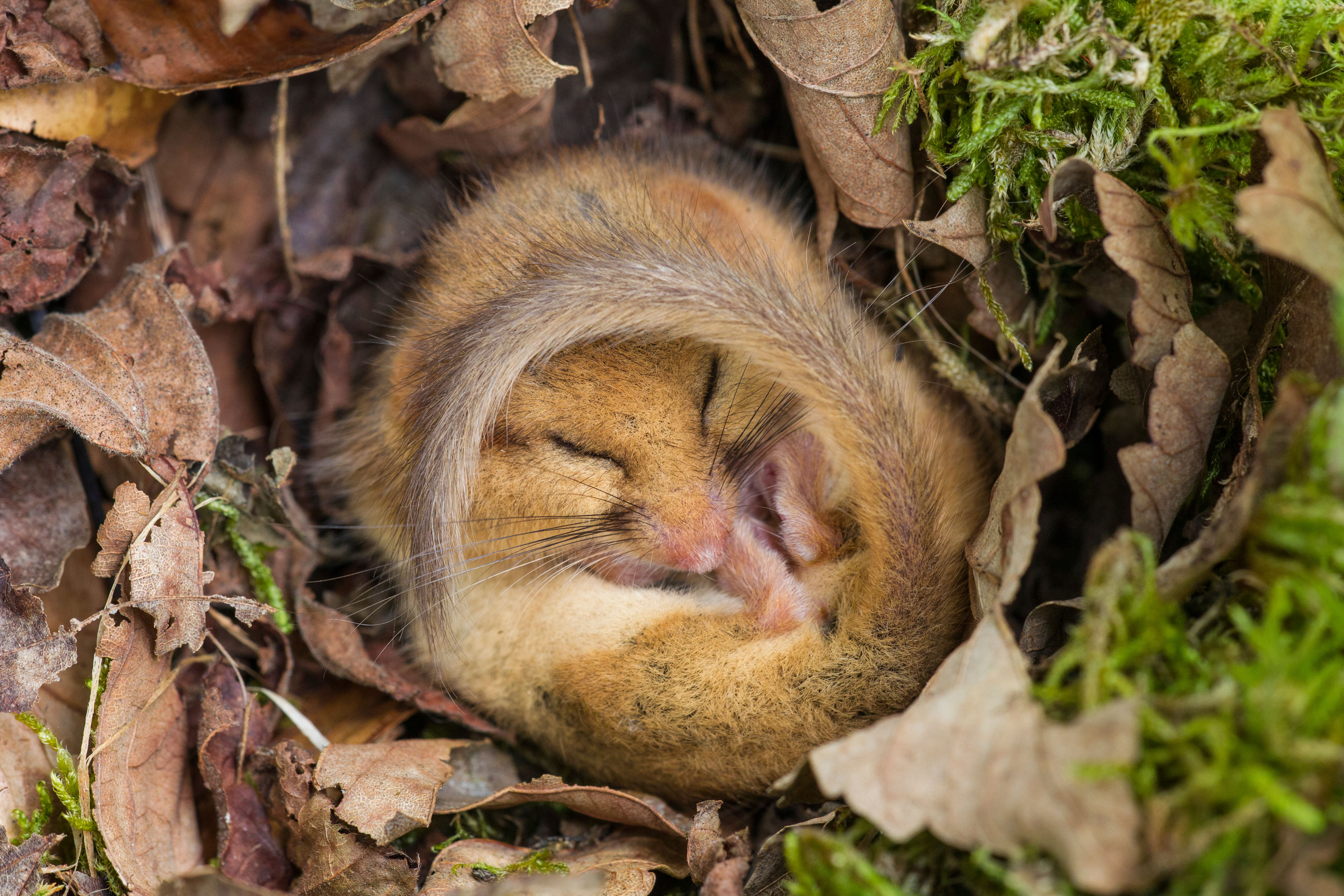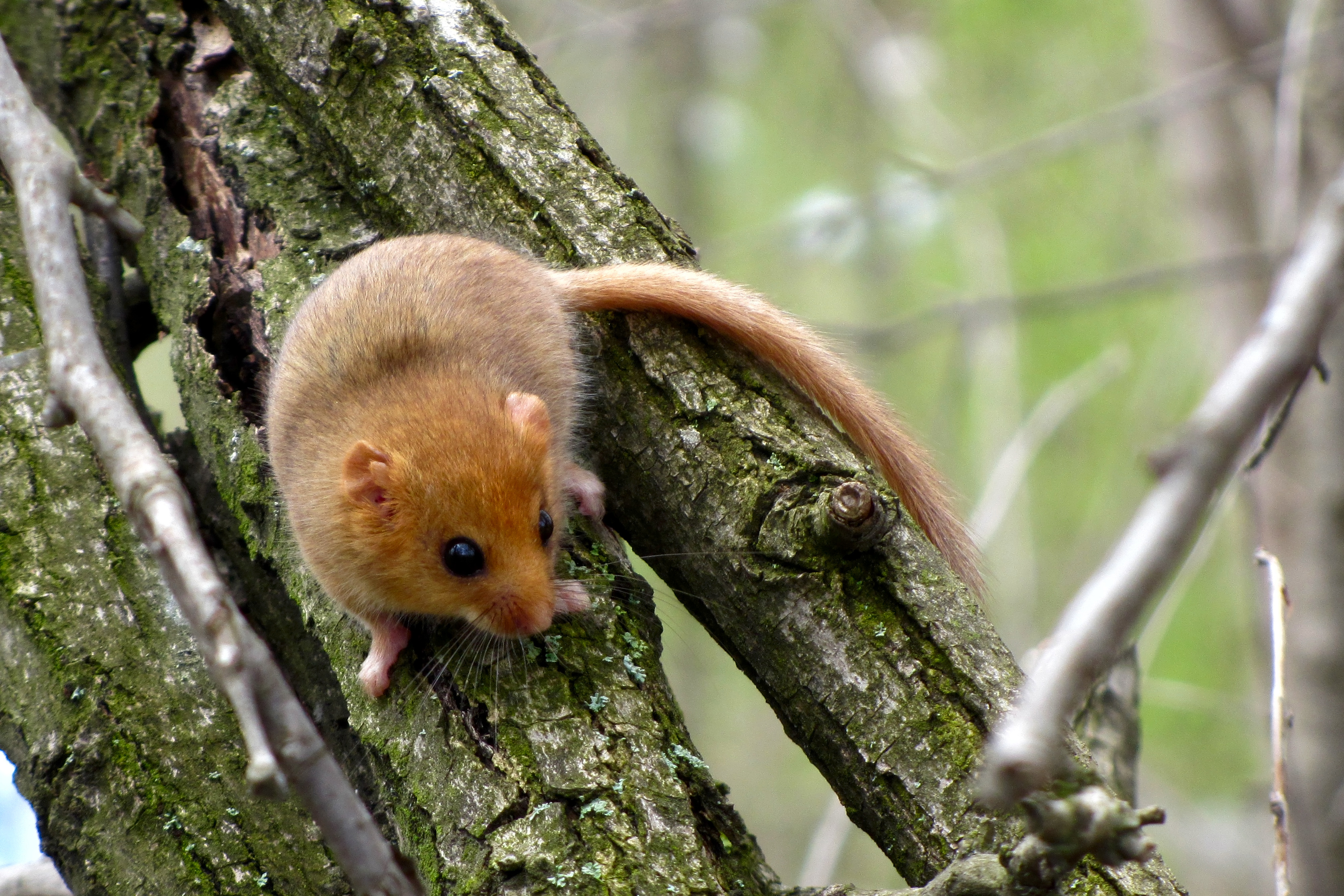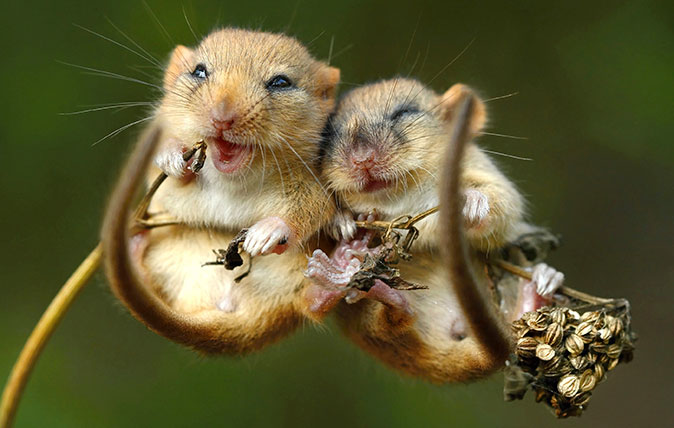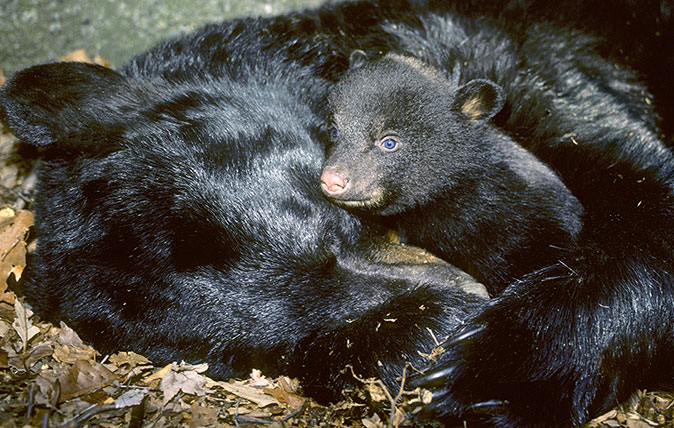Country Life Today: How you can help protect rare hazel dormice as they prepare for their winter sleep
In today's round-up we bring you useful advice from the National Trust, challenging times for the world's oldest post office, and a herd of cows who wouldn't be out of place in the showjumping ring.

The simple ways you can help dwindling dormice

The National Trust is calling on the public to help boost numbers of hazel dormice, since populations in the UK have fallen by around a third since 2000.
Habitat loss is believed to be the main reason for the decline, but increasingly warm winters are also having a negative effect, with dormice awaking from hibernation too early and hazel trees, their main habitat, showing signs of stress.
Nature lovers can protect the species through a number of measures, including allowing bramble to grow, leaving ivy on trees and piling up logs.
Rangers on the wooded Cotehele Estate in Cornwall found a sleepy pair of hazel dormice during their monthly monitoring check of the local dormouse population, conducted each year from April to October.
'Finding a snoring dormouse inside a nesting box is an amazing feeling — they’re such gentle and charismatic creatures,' said George Holmes, lead ranger at the National Trust.
'We’re working hard to improve numbers on the estate. Dormice are a key indicator species of the health of a woodland — so if the dormice are thriving, chances are other wildlife is too.
'Everyone can do their bit to encourage dormice and other wildlife, whether it’s by letting the ivy grow on a tree in your garden or stacking up a pile of logs as shelter.'
Exquisite houses, the beauty of Nature, and how to get the most from your life, straight to your inbox.
The conservation charity is asking the public to report any sightings via the People’s Trust for Endangered Species website: surveydata.ptes.org/dormouse-database
The ape that learned to walk
Scientists have discovered the fossilised remains of an ape that could represent the ‘missing link’ between the species and mankind.
The fossils — two males, a female and a young ape — were found in Germany and date from more than 11 million years ago. Their limbs are particularly well-preserved and this has allowed researchers to understand how they moved. The discovery is nothing short of extraordinary: the animals appear to have been able to use all four limbs to climb, like orangutans, but also walk proficiently on two legs, like humans.
‘It was astonishing for us to realise how similar certain bones are to humans, as opposed to great apes,’ said Prof Madelaine Böhme from the University of Tübingen, Germany, who was part of the study team.
New robot makes short work of trimming and pruning

A new robot looks set to take the hard toil out of gardening. Created by the University of Edinburgh, together with five other European institutions and white-good company Bosch, with funding from the European Union, Trimbot is cutting edge in every sense of the words — it’s a ground-breaking innovation that promises to prune roses and trim overgrown bushes.
On this day...
Happy birthday Gordon Ramsay! The British chef was born on 8 November, 1966, in Johnstone, Scotland. Gordon shared a video of his fifth child, Oscar, enjoying his first taste of his mother's cooking earlier this week. It's safe to say he takes after his father and is a tough critic...
Fancy making your own gin?
If you live in King’s Lynn, Norfolk, you may be in luck. A proposal has put forward to convert a Grade II*-listed 15th century warehouse in King Street into a distillery with a workshop where the public could go and make their own gin. Also on site would be a shop selling local produce.
A planning application has been submitted to West Norfolk Borough Council and local people are invited to have their say on the plan.
Full story (Eastern Daily Press)
The world’s oldest post office facing prospect of closure

The world’s oldest post office, which has been operating in Sanquhar, Scotland, for more than 300 years, faces an uncertain future.
Current owner and stamp collector, Manzoor Alam, and his wife, Nazra, have been forced to put the business and its accompanying cottage on the market due to ill health.
The Alams are ‘heartbroken’ to leave the post office and are concerned that if a buyer cannot be found, its rich history could be lost.
And finally... cautious cows
A herd of cows have found fame on social media after their reluctance to step over a white road marking was caught on camera.
The entire herd show off their athletic jumping skills as they make great efforts to avoid treading on the painted line, earning them thousands of likes on Twitter.
We think these Friesians might be better suited to the showjumping ring than the milk shed...

Credit: Caters
Dormice: Britain’s sleepiest, and most charming little creatures
David Profumo takes a look at the lovely little dormouse – a delightful little creature which spends 75 per cent

Credit: Alamy
Hibernation: The animal phenomenon that might just save the human race
For centuries, naturalists pondered how a warm-blooded creature could descend into a near-death winter state and surface unscathed the following